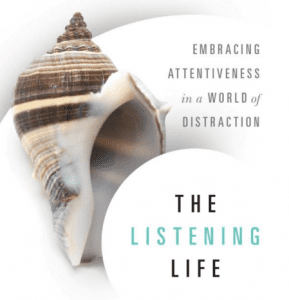Improvising within the Fullness of Time
 A review of Scott Waalkes, The Fullness of Time in a Flat World: Globalization and the Liturgical Year (Eugene: Wipf & Stock, 2010).
A review of Scott Waalkes, The Fullness of Time in a Flat World: Globalization and the Liturgical Year (Eugene: Wipf & Stock, 2010).
This book has not received much buzz around the blogosphere, but I believe it deserves to be engaged. Also, given the fact that we are in the midst of Lent, it is appropriate to consider Waalkes’s proposal that Christians formed by the liturgical year—the fullness of time—will be equipped to improvise fitting responses to globalization. In particular, this review will explore his claim that “entering into the story of Lent each year can even help the church to improvise constructive ethical responses to problems inherent in global consumerism” (150).
First, what does Waalkes mean by globalization? He rightly observes that globalization is not just economic, but involves increased economic, ecological, political, and cultural contact between people around the world (xii). In a flat world of shrunk space and accelerated time, we have experienced a sense of powerlessness in being disconnected from local stories and communities, a sense of disenchantment as technology takes over, a scarcity of time, and a loss of moral direction. In other words, Waalkes maintains that globalization depletes us of imagination, wonder, time, and morality.
Alternatively, entering into the rhythm of the liturgical year nourishes what has been depleted. First, it helps us find ourselves in the middle of the theodrama, a drama centered on the action of God and extending from creation to new creation. This drama fuels our imaginations and inspires a different way of living. Second, being part of a cosmic drama is an enchanting prospect, helping us realize that living faithfully is more an art for apprentices than a science for masters. Third, placing ourselves within this drama means seeing time as a gift to enjoy and not as a resource we can buy and sell. Fourth, all of this provides the perspective we need to improvise practical and fitting responses to globalization. In sum, the liturgical year “incorporates us into the gospel narratives, making us participants in them, which helps us to re-imagine globalization so that we can creatively improvise ethical practices that help advance the drama” (25).
This is an attractive proposal, but there is one weakness worth highlighting at this point. Rather than conceiving of globalization as a reality that drains our imagination, wonder, time, and morality, it seems more accurate to assert that globalization cultivates a different kind of imagination, wonder, time, and morality. In other words, it is not that globalization de-dramatizes and disenchants our existence, but that it is a powerful script forming our imagination of and participation in the drama of existence. If we follow Waalkes’s critique of globalization, therefore, we can view globalization as a script for our performance of life that stands in contrast to and even competition with the counter-script of the Christian drama as presented in the liturgical year. The insights of Walter Brueggemann are most helpful here, who claims that the dominant cultural script in America is “therapeutic, technological, consumeristic militarism” and that Scripture and tradition provides a counter-script for reimagining our existence. This seems similar to what Waalkes proposes throughout The Fullness of Time in a Flat World, and his argument would have been greatly strengthened by interacting more with Brueggemann on this point.
Despite this critical detour, there is much to commend as Waalkes walks through the liturgical year and describes subversive, improvisational practices that sustain the life of the church. In considering Lent, he contrasts this part of the Christian year with the habits and practices of consumerism, which turns the drama of existence into a never-ending process of fulfilling fleeting desires for the newest and best things. In Desiring the Kingdom, James K. A. Smith discusses shopping as a “cultural liturgy” and shopping malls as religious places, and here Waalkes advances a similar thesis (but lamentably not in conversation with Smith) that shopping is another form of worship. Entering the story of Lent, however, means playing our part in a drama of endless giving rather than endless consumption. It means “entering the movement of divine generosity” as Kelly Kapic brilliantly expounded in God So Loved He Gave. As Jesus made his way to Jerusalem and toward the completion of mission of “being consumed,” so during Lent we mirror this journey and improvise practices of being consumed rather than consuming (see William Cavanaugh’s Being Consumed). By fasting from consumption, we develop habits of restraint instead of self-indulgence. Prayerful, meditative Bible study enables us to grasp the radical nature of Jesus’ Passion and how he enables our participation in the drama. And there is also a time for feasting, since “fasting can help one to feast on simple joys, turning deprivation into an opportunity for creative adventure” (175).
Some people find entering into the liturgical year a constraining practice, bound by repeating the same things every year. But Waalkes presents a different perspective: celebrating the same things does not have to degenerate into dull repetition, not if we see the liturgical year as improvising off the form of God’s own improvisation in history. And contrary to common opinion, improvisation is not about trying hard to be original, but doing what is most obvious based on the drama in which we are performing (a point made by Samuel Wells in Improvisation: The Drama of Christian Ethics). As with an increasing number of theologians and ethicists who are employing theatrical metaphors and models, I found the use of the theatrical model dissatisfying shallow at times. In my opinion, engaging in serious investigation of theatrical improvisation could have produced even more interesting and fruitful ideas about “reframing globalization and nurturing improvisational practices” (321).
Overall, however, this book gives compelling rationale for following the church calendar rather than the retail shopping calendar, which “liberates the church to respond to globalization creatively, improvising responses as situations emerge” (319). If this book has not found its way into your hands, I encourage you: take up, read, and begin to improvise within the fullness of time!











